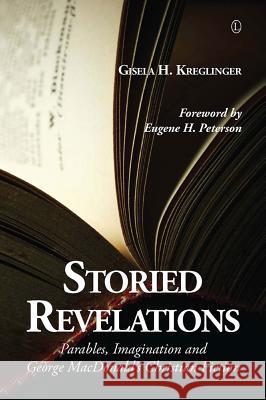Storied Revelations: Parables, Imagination and George Macdonald's Christian Fiction » książka
Storied Revelations: Parables, Imagination and George Macdonald's Christian Fiction
ISBN-13: 9780718893293 / Angielski / Miękka / 2014 / 248 str.
Parables were used by Jesus to reveal to us the kingdom of God and to move us from being bystanders to active recipients of God's work of revelation. However, parables are constantly at risk of being buried as "mummies of prose," as George MacDonald puts it. We become so familiar with the language of Scripture that Jesus' parables no longer work on us in this revelatory and transforming way. George MacDonald, the Victorian poet and theologian, observed this very process at work in Victorian society. It was a culture saturated with Christian jargon but often devoid of a profound understanding of the gospel for its own time and culture. The language of Scripture no longer penetrated people's hearts, imaginations, and attitudes; it no longer transformed people's lives. MacDonald, called to be a pastor, turned to story and more specifically the "parabolic" as a means of spiritual awakening. He created fictional worlds in which the language of Jesus would find a new home and regain its revelatory power for his particular Victorian audience. Gisela H. Kreglinger is visiting scholar at the University of St Andrews, Scotland. "In this illuminating comparison between the parables of Jesus and the fiction of George MacDonald, Kreglinger shows how both told stories that de-familiarize by using shocking versions of symbolic meaning that draw the reader into transformative participation in the kingdom of God. . . . With these insights, Kreglinger opens up in a fresh way the pervasively Christian nature of MacDonald's mature fantasy literature." Richard Bauckham, University of St Andrews. "George Macdonald was one of the great storytellers of the Christian tradition. Convinced that living faith could no longer be sustained by tired old doctrinaire formulations of truth, he envisioned the Word made fresh through revitalizing imagination, poetry, and parable. This book is a winsome and perceptive exploration of MacDonald's subversive literary agenda. Custodians of archival Christianity should feel threatened, very threatened indeed." Glen G. Scorgie, Bethel University, Minnesota











